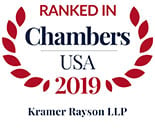Put your policy in writing. It should be in plain English and define any technical terms so even the most technophobic employee can understand them.
Emphasize that the company owns and controls all technological tools: desktops, laptops, PDAs, software, internet access, and even “thumb drives” and other storage media if you issue them to your workers. At no point do employees have an ownership interest in these materials – tell them early and often.
Make sure employees understand that (1) you have the right and the technological ability to monitor their e-mail and internet access, and (2) none of their electronic activity is private, including e-mail and voice mail.
Strike a balance. Employees should generally not be allowed to use company technology for non-work related uses. However, you should make reasonable allowances for employees’ incidental personal use of e-mail or internet access to handle family matters. Moderation is key here.
However, forbid without qualification any use of company technology for gambling, pornography, or any other illegal or unethical activities, including copyright infringement. Provide that copyrighted material may not be placed on the system without the author’s permission. Allow users to download copyrighted material only in compliance with copyright laws. Forbid transmission or downloading of material that is threatening, obscene, disruptive or sexually explicit, or that could be construed as libel, slander, threats of bodily harm, or harassment or disparagement of others based on their race, national origin, sex, sexual orientation, age, disability, religion, or political beliefs.
Be careful with instant messaging. Some business encourage intra-office messaging as a means of communication. However many regulated industries need to keep a record of all communications, but most IM software does not allow for message retention.
Confidential information about your business should not be transmitted without proper encryption or other security measures. If you don’t know how to encrypt data (or don’t know what “encryption” means), then find a company who does.
Cross-reference your information management policy and urge employees to familiarize themselves with retention periods that apply to the kinds of information they create or receive. Emphasize that it is not in the company’s best interests to keep information forever, or to dispose of information that it should have kept.
If you have questions about policies regarding the use of technology, call Kramer Rayson LLP at 865-525-5134 or contact us online. With offices in Knoxville and Oak Ridge, we regularly serve clients throughout the state and beyond.







